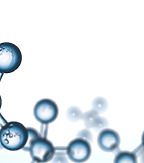Case | 1 February 2019
Setterwalls successfully represented Sandoz in dispute over supplementary protection certificate for medicinal products

Sandoz won in the Patent and Market Court of Appeal as the Court considered that the supplementary protection certificate for the substance darunavir is likely invalid. Thus, on January 29, 2019, the Court decided to reverse the decision of the lower instance court and finally reject the opposing party’s claim for a preliminary injunction.
Searle and the Janssen companies brought an action against Sandoz for alleged infringement of supplementary protection certificate for medicinal products and i.a. claimed a preliminary injunction prohibiting Sandoz under the penalty of a fine from marketing the drug Darunavir Sandoz. The supplementary protection certificate refers to the active substance darunavir, used to treat HIV infection and AIDS. Sandoz, in turn, brought an action for the annulment of the supplementary protection certificate on the ground that it was notified in breach of Article 3 (a) of Regulation (EC) No 469/2009 of the European Parliament and of the Council of 6 May 2009 on the supplementary protection certificate for medicinal products (the “SPC Regulation”). The Patent and Market Court decided to sustain the claim for a preliminary injunction. Sandoz appealed the decision to the Patent and Market Court of Appeal, which agreed with Sandoz and decided to reverse the decision of the lower instance court since the supplementary protection certificate will likely be declared invalid. The preliminary review will be followed by a complete review of the validity of the supplementary protection certificate in the Patent and Market Court.
The case has dealt with the issue of how Article 3 (a) of the SPC Regulation is to be interpreted and applied. In order for a supplementary protection certificate to be granted, according to the aforementioned provision, the product (i.e. darunavir) must be protected by a basic patent in force. The claims of the basic patent were in this case formulated as so-called Markush claims. This means that the patent claims are based on a general structural formula with several selectable substituents. The parties agreed that darunavir per se falls within the scope of the basic patent. However, referring to recent case-law by the CJEU, most recently Teva v. Gilead, the Patent and Market Court of Appeal agreed with Sandoz that this is not sufficient for the requirement in Article 3 (a) of the SPC Regulation to be fulfilled. Moreover, the product must (1) be part of the patented invention and (2) be specifically identifiable by a skilled person in light of all the information disclosed in the basic patent and in view of the general knowledge of the skilled person on the priority date. The Patent and Market Court of Appeal thus clarified that the criteria set by the CJEU in Teva v. Gilead are general and not limited to combination products (as was the case in Teva v. Gilead). The interpretation of Article 3 (a) of the SPC Regulation in relation to Markush claims specifically is currently being examined by the CJEU in a case relating to a preliminary ruling.
Contact:
Practice areas:
Intellectual property, marketing and media law, Life Sciences, Dispute resolution


